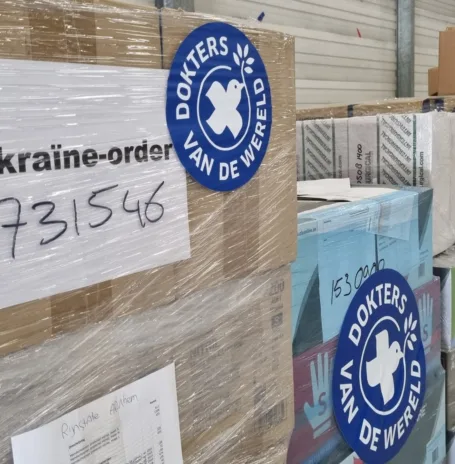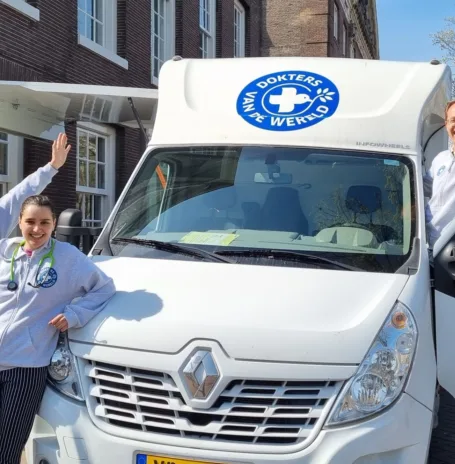Eind november heeft Novartis, een Zwitserse bedrijf dat geneesmiddelen produceert, beslist om één van zijn patenten op Kymriah (een gentherapie tegen kanker) in te trekken, na een klacht van Dokters van de Wereld.
Op 3 juli 2019 dienden Dokters van de Wereld en Public Eye een klacht in bij het Europese Octrooibureau tegen een patent voor Kymriah®, een gentherapie voor kanker van Novartis. Reden voor de aanklacht was dat er met dit patent onacceptabele prijzen konden worden gevraagd. Bijvoorbeeld in Frankrijk kost het € 320.000 per patiënt. Eind november 2019 kondigde Novartis aan het patent zelfstandig in te trekken. Dokters van de Wereld is enorm blij met deze overwinning, omdat het een historische en belangrijke stap is in een eerlijke toegang tot medicatie.
Hieronder het volledige persbericht (Engelstalig):
Doctors of the World (Médecins du Monde) victory: Novartis withdraws an abusive patent for an over-priced cancer medication
(Paris, 11/12/2019) On 3 July 2019, the organisations Doctors of the World and Public Eye, represented by Lionel Vial, filed a patent opposition at the European Patent Office against a patent covering Kymriah®, a gene therapy for cancer from Novartis, for which the French Social Security is billed €320,000 per patient. The aim was to denounce an abusive patent that aimed to strengthen a monopoly which would allow an exorbitant price to be imposed. At the end of November 2019, Novartis announced that it was withdrawing this patent and asked for it to be revoked, itself.
Novartis withdraws the Kymriah® patent, a victory achieved through the mobilisation of civil society
This objection made by Doctors of the World and Public Eye denounced the exponential increase in prices for new treatments arriving on the markets. The aim was to draw attention to the prices of new gene therapies for cancer, which, at over 300,000 euros per person, put pressure on national health service budgets, and consequently access to healthcare for patients. In 2014, exorbitant prices for medicines for hepatitis C had led the French government and its counterparts in Europe to take rationing measures. As the same causes produce the same effects, it is very likely that cell therapies for cancer could also be hit by rationing measures. By creating the conditions for lower price negotiations, Doctors of the World and Public Eye also intend to reduce the prices of all future therapies of this kind. Patent opposition is a strong and effective tool to achieve this because it obliges the patent holders to respond to the arguments of the objector requesting the patent’s cancellation.
In a letter dated 29 November 2019, the legal firm representing Novartis and the University of Pennsylvania, the patent holders, announced that the proprietor no longer approves the text on the basis of which the patent was granted, and would not present an amended version of the patent in question. The firm said that they were requesting that the patent be revoked themselves. Through this decision, the procedure stopped and the patent no longer exists.
This is a historic decision, a first step towards fair access to treatment.
This decision confirms the abusive nature of the patent, which should never have been granted by the European Patent Office. ‘This patent withdrawal demonstrates monopolies’ abuses, in particular with new, expensive gene and cell therapies. The States agree to high prices based on unjustified intellectual property rights which are never called into question. They are however responsible for guaranteeing that medication patentability criteria are observed, and should never allow abusive patents that will cost millions to healthcare systems,” explains Olivier Maguet, Head of the medication price and healthcare systems mission at Doctors of the World.
However, Kymriah® is protected by other patents. This decision does not enable a biosimilar version of the treatment to be produced. Yet, it is a landmark decision. It strengthens public hospitals’ capacity to produce similar off-patent versions, at minimal costs, which is therefore likely to reduce the price of ‘branded’ therapies. And this alternative exists and is viable, because other countries in Europe use it. It also strengthens’ institutions involved in the price negotiation, to demand lower prices arguing on the basis of weak intellectual property rights, and therefore illegitimate monopolies. Finally, it should enable civil society organisations throughout the world to use similar arguments to object to similar abusive patents.
This decision is a first, and calls for others. Doctors of the World and Public Eye intend to take similar initiatives again that could reduce prices and guarantee fair access to treatment. It’s a decisive step, and we remain more prepared than ever.





